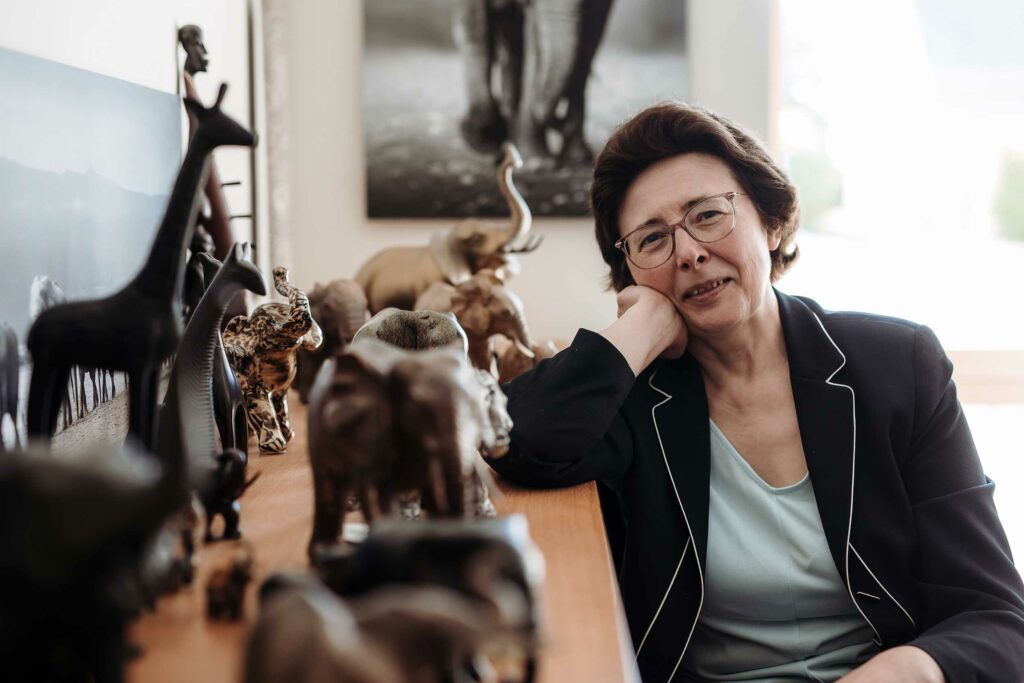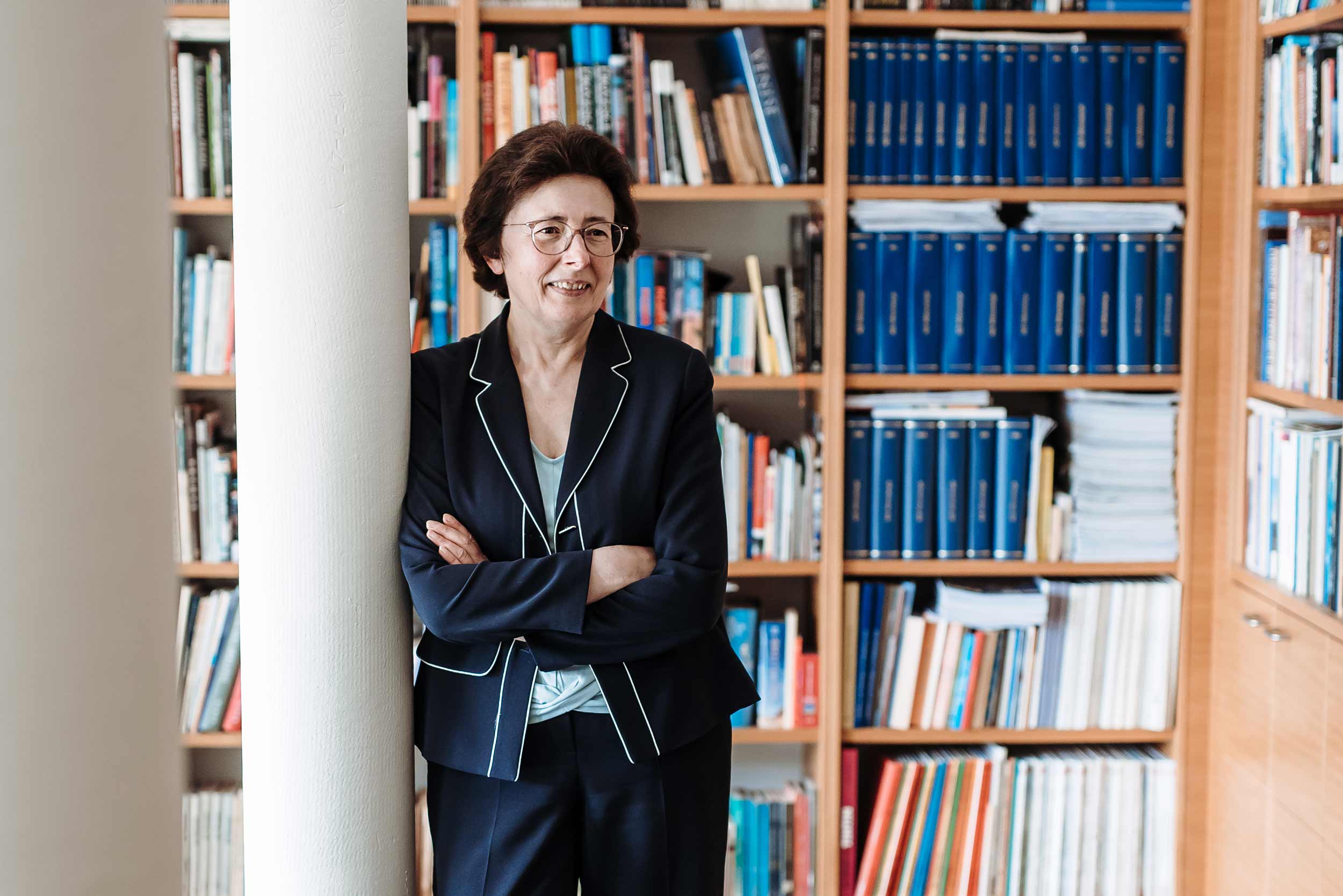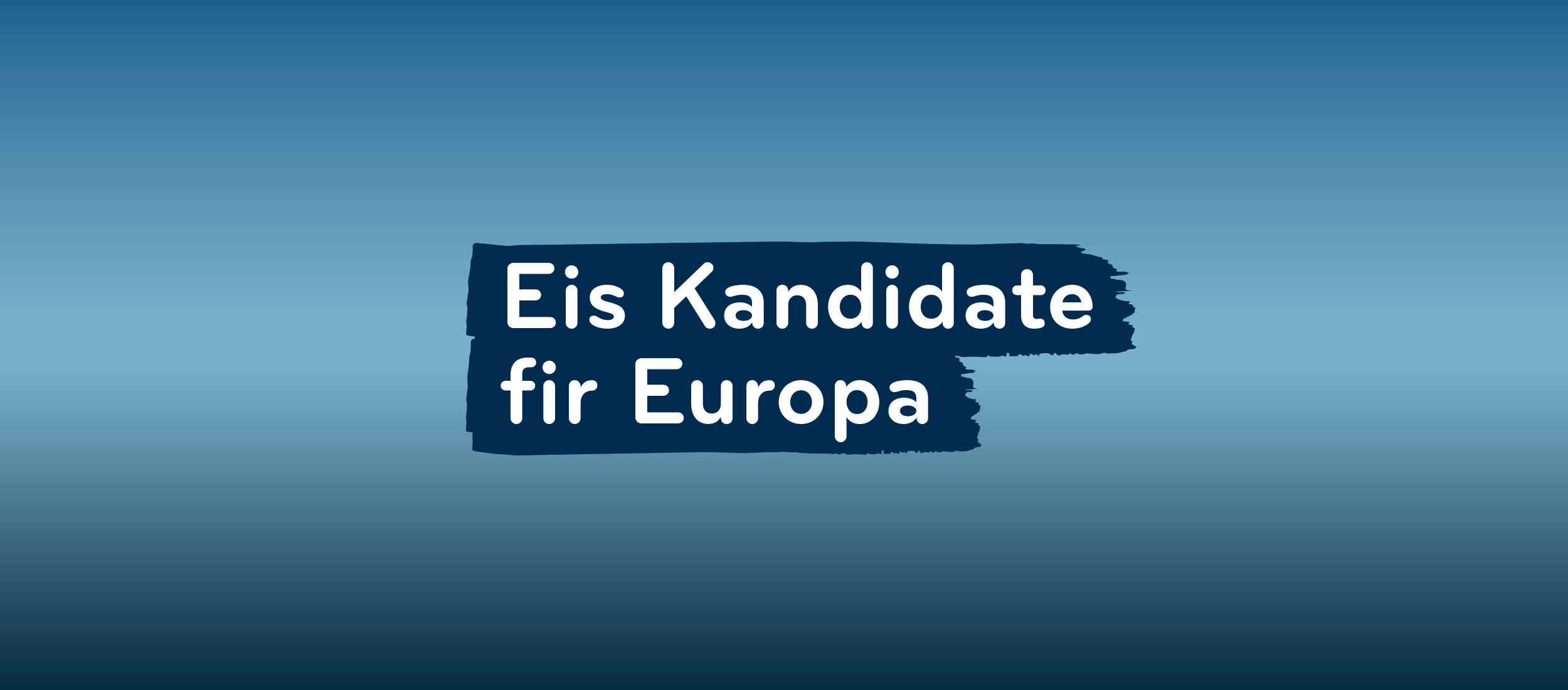If someone asks mewhere I live, I’d rather say Hamiville than Heesdref, which many confuse with Heeschdref near Walfer, chuckles Agny Durdu in front of her office on the main street. She grew up on the farm nearby. Today she lives there with her mother and brother.
School has priority
Life in Heesdref was quiet back then. Especially until 1978, before the municipality of Wëntger was founded.The largest commune in the country.At that time the first associations were founded. Before that, there was barely a church choir in our villages, remembers the lawyer.
At the farm, everyone has to lend a hand. I learned to work at an early age, Agny recalls. And since her parents could not continue with school because of the war, education was their first priority.
That’s why Ididn’t go to the Sainte-Marie in Ettelbruck, where they didn’t offer awhole course of studies, but to the Fieldgen in Luxemburg City.It was a change, but no problem, says Agny Durdu. Learning was always a pleasure for me. Agny graduated high school with a ‘Première D classique’ and spent another year at the Centre Universitaire in Limpertsberg.
Meeting new people
She went on to study law in Louvain-la-Neuve.A deliberate choice: I didn’t want to go to a city full of Luxembourgish students. I wanted to meet new people. In the mid-80s, there weren’t many Luxemburgersin Louvain and I really made some great friendships. In the end, Agny lived in a house with 7 other students.
Every weekend Agny took the train back home. And with the goalto experience two different countries, she made an additional specialisation in European law in Strasbourg.
After graduation Agny Durdu joined the law firm of Maître Albert Rodesch.
A red carpet for new residents
Politics has always been a topic in the Durdu family. As a young girl, Agny felt inspired by Gaston Thorn or Marcel Mart from the blue-red coalition of 1974-1979. This period has left its mark on her: ‘In politics, the DP was the only option for me.’ It was therefore no surprise that Agny stood in the municipal elections in 1993 with the support of Henri Wenkin, who had resigned as mayor. At the age of only 27, Agny Durdu became mayor with an absolute majority.
At that time, we were a community of only 3,000 inhabitants. At that time, we were a community of around 3,000 inhabitants. And anyone wanting to live with us was given the red carpet to build himself a home.Over the years, however, this was no longer possible and we had to find new ways, just like other communities in the north.
In 1994 -as a member of the DP -Agny runs in the national elections and replaces Charel Goerens, who moves to the European Parliament. She remained in the Chamber of Deputies until 2004 and was mainly responsible for educational, agricultural and economic dossiers.

A great disappointment and a new challenge
In 2004 and 2005, Agny Durdu has to suffer two defeats. First, she is not re-elected to the Chamber of Deputies and then she loses her majority in the commune of Wintger, even though she received the most personal votes. ‘This was due to thechange from the majoritarian system to the proportional representation system, and it affected me deeply. I would be lying if I said I didn’t care.’
After the DP’s defeat in the 2004 national elections, Agny became
general secretary, but left the position in 2006 after her nomination to the State Council.‘The StateCouncilwas a new world for me, sinceI had to analyse the dossiers from a legal rather than a political point of view. It is a very enriching workdue to the many interactionswith colleagues and officials. I have learned a lot.
From2019 until last year Agny Durdu was President of the State Council.
No nature reserve
Today Agny Durdu works as a lawyerfrom home, enjoying the beautiful view ofthe Ösling hills at the back of her house.
The region has come a long way in the last decades. However, Agny has the impression thatsome people are trying toto turn the north of the country into a kind of nature reserve. ‘I believe that climate change isthe biggest challenge of our country and mankind, but very often there are excessive barriersthat prevent ahealthy development. Andthismakes me sad.
What are Agny Durdu’s goals for the future? Let’s see, she says, serving a piece of marble cake with coffee, her eyes fixed on her collection of elephants next to her study: ‘They are strong and smart animalsand yet they are vulnerable and endangered.’








